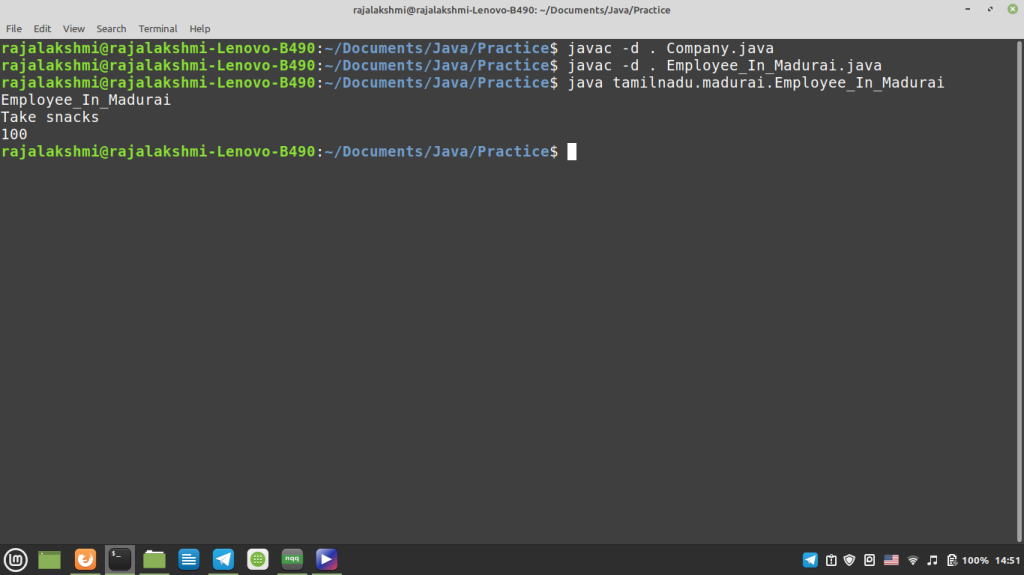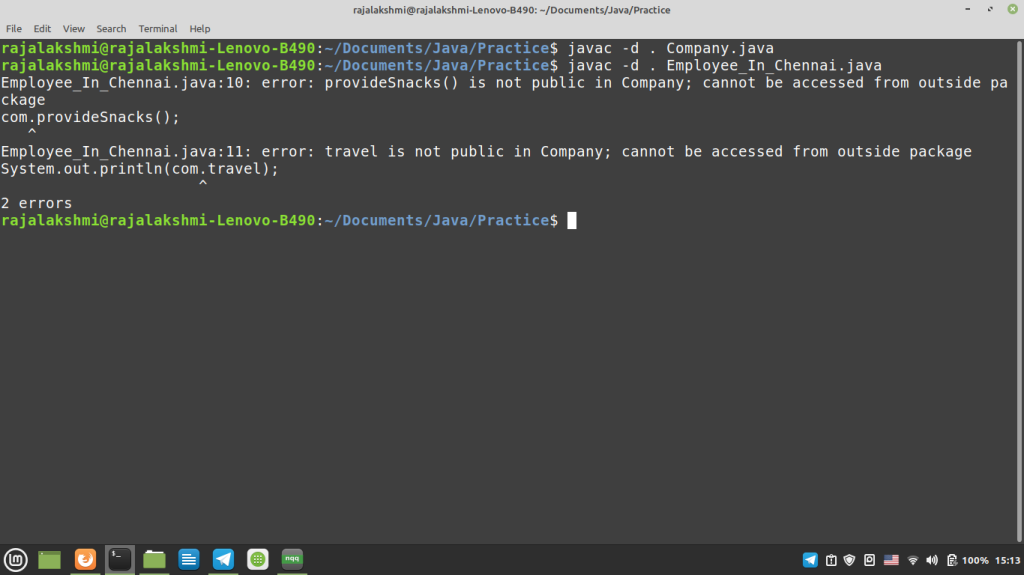Package:
- Packages are folder structure.
- Packages as the name suggests, is for packing related classes into one group.
- we write at the beginning of any class file to indicate where exactly that class has to be created.
- It helps organize our classes into a folder structure and make it easy to locate and use them. More importantly, it helps improve re-usability.
- Each package in Java has its unique name.
- There are two types of packages in java.
- Built-in package: Already defined packages(Will learn later).
- User defined package: The package which we create is called user-defined package.
- Syntax: package package_name;
Import:
importkeyword is used to import a package, class or interface.- It is used to make other classes and interfaces available and accessible to the current source code.
- In simple words, if a class wants to use another class in the same package, the package name does not need to be used. Classes in the same package find each other.
- Classes from different packages cannot find each other. Here, we can used import keyword for importing a class.
- The import statements must be placed on top of the source file, only after the package statement.
Default Access Modifier: (No keyword required)
- The access level of a default modifier is only within the package.
- It cannot be accessed from outside the package.
- If you do not specify any access level, it will be the default.
- It provides more accessibility than private. But, it is more restrictive than protected, and public.
Example 1:
- We have created two classes in same package.
- tamilnadu.madurai –> package name
- Company –> class name
- Employee_In_Madurai –> class name
- tamilnadu.madurai –> package name
- In Company Class, Variables and methods are declared without any modifiers, So they are default.
- We can access default modifier from same package.
- So, we are accessing Company Class variable & method from Employee_In_Madurai Class.
Company Class:
package tamilnadu.madurai;
public class Company
{
int travel = 100;
public static void main(String[] args)
{
System.out.println("Company in Madurai");
}
void provideSnacks()
{
System.out.println("Take snacks");
}
}
Employee_In_Madurai Class:
package tamilnadu.madurai;
public class Employee_In_Madurai
{
public static void main(String[] args)
{
System.out.println("Employee_In_Madurai");
Company com = new Company();
com.provideSnacks();
System.out.println(com.travel);
}
}
Output:

Example 2:
- We have created two classes in different packages.
- tamilnadu.madurai –> package name
- Company –> class name
- tamilnadu.chennai –> package name
- Employee_In_Chennai –>class name
- tamilnadu.madurai –> package name
- In Employee_In_Chennai Class, we imported the Company class.
- In Company Class, Variables and methods are declared without any modifiers, So they are default.
- Default modifiers cannot be accessed from outside the package.
- So, we cannot accessed Company Class variable & method from Employee_In_Chennai Class.
Company Class: Refer Example 1
Employee_In_Chennai Class:
package tamilnadu.chennai;
import tamilnadu.madurai.Company;
public class Employee_In_Chennai
{
public static void main(String[] args)
{
System.out.println("Employee_In_Chennai");
Company com = new Company();
com.provideSnacks();
System.out.println(com.travel);
}
}
Output:

Solution:
- In Company Class, If we declare the variable & method as public, we will access it from outside the package.